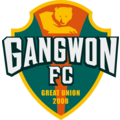MATCH OVERVIEW
The K League 1 match between Daegu and Gwangju is set to be a thrilling contest, with both teams eager to climb the league table. Daegu, playing at home, will look to leverage their familiarity with the venue to gain an advantage over Gwangju. This match is crucial for both teams as they aim to solidify their positions in the league and gather momentum for the latter part of the season.
ODDS ANALYSIS
The average odds for this match suggest a competitive game, with Gwangju slightly favored to win at 2.1 compared to Daegu's 3.12. The draw is priced at 3.38, indicating a balanced contest. The probabilities derived from these odds are approximately 31.8% for a Daegu win, 28.9% for a draw, and 47.6% for a Gwangju victory. Given these odds, Gwangju is expected to have a slight edge, but Daegu's home advantage could play a pivotal role.
TEAM ANALYSIS
Daegu has shown a mixed form this season, with a notable ability to score goals, as evidenced by their 66.67% over 2.5 goals rate. Their possession stands at 50.2%, indicating a balanced approach. However, their defense has been a concern, conceding an average of 1.53 goals per match. Gwangju, on the other hand, has a slightly better defensive record, conceding only 1 goal per match, and they maintain a higher possession rate of 52.53%. Their offensive capabilities are less pronounced, with a lower goal-scoring rate.
KEY PLAYERS SPOTLIGHT
For Daegu, players like Bruno Lamas and Caio Marcelo have been instrumental, each scoring 3 goals this season. Cesinha also adds depth to their attacking options. Gwangju's Reis has been a standout performer, netting 4 goals, and will be crucial in their attacking strategy. The matchup between these key players could determine the outcome of the game.
STATISTICAL DEEP DIVE
Daegu's offensive metrics, such as 12.73 shots per game and 4.13 shots on target, highlight their attacking intent. However, their defensive metrics, including 44.53 interceptions, suggest room for improvement. Gwangju's passing accuracy, with 365.87 successful passes, indicates a strong midfield presence, which could be decisive in controlling the game.
PREDICTION AND CONCLUSION
Based on the data, Gwangju appears to have a slight advantage, particularly with their defensive solidity and possession stats. However, Daegu's home advantage and attacking prowess could lead to a closely contested match. The key factors will be Daegu's ability to capitalize on their scoring opportunities and Gwangju's defensive resilience. The predicted final score is a narrow 2-1 victory for Gwangju, with a half-time score of 1-1.
Tất cả các dự đoán, mẹo cá cược và tỷ lệ cược được cung cấp trên trang này được tạo ra bằng cách sử dụng các mô hình dựa trên dữ liệu và phân tích chuyên gia. Mặc dù chúng tôi cố gắng đảm bảo độ chính xác, không có dự đoán nào có thể đảm bảo kết quả. Kết quả bóng đá bị ảnh hưởng bởi nhiều yếu tố không thể đoán trước như chấn thương, thời tiết và quyết định của đội. Vui lòng sử dụng nội dung của chúng tôi chỉ cho mục đích thông tin và không phải là lời khuyên tài chính.
<0>Predictions.GG không khuyến khích hoặc cổ vũ cờ bạc. Nếu bạn chọn đặt cược, hãy làm điều đó một cách có trách nhiệm và đảm bảo tuân thủ luật pháp và quy định của quốc gia bạn. Để được giúp đỡ về vấn đề cờ bạc, hãy truy cập <1>BeGambleAware.org hoặc dịch vụ hỗ trợ địa phương của bạn.











